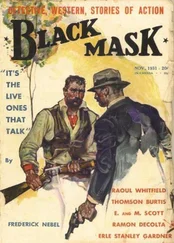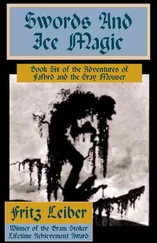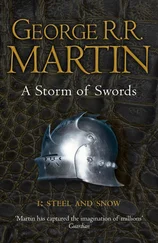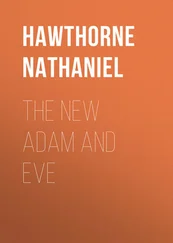I let that go. “You joined the Order.”
“No.” The flat voice had gone; there was a flare of anger. “No, I failed matriculation. I retook it the next year, but I failed again. They sent me back to my parish, but by then they’d got someone else. So I ended up wandering about, looking for teaching work, letter-writing, anything I could do to earn a living. There’s not a lot you can do, of course.”
Suddenly I felt bitter cold, right through. Took me a moment to realize it was fear. “So you came here,” I said, just to keep him talking.
“Eventually. A lot of other places first, but here’s where I ended up.” He lifted his head abruptly. “They sent you here to deal with me, am I right?”
I didn’t reply.
“Of course they did,” he said. “Of course. I’m a nuisance, a pest, a menace to agriculture. You came here to dig me up and cut my head off.”
This time, I was the one who had to speak against my will. “Yes.”
“Of course,” he said. “But I can’t let you do that. It’s my—”
He’d been about to say life . Presumably, he tried to find another way of phrasing it, then gave up. We both knew what he meant.
“You passed the exams, then,” he said.
“Barely,” I replied. “Two hundred seventh out of two hundred twenty.”
“Which is why you’re here.”
His white eyes in the ash-white moonlight. “That’s right,” I said. “They don’t give out research posts if you come two hundred seventh.”
He nodded gravely. “Commercial work,” he said.
“When I can get it,” I replied. “Which isn’t often. Others far more qualified than me.”
He grunted. It could have been sympathy. “Public service work.”
“Afraid so,” I replied.
“Which is why you’re here.” He lifted his head and rolled it around on his shoulders, like someone waking up after sleeping in a chair. “Because—well, because you aren’t much good. Well?”
I resented that, even though it was true. “It’s not that I’m not good,” I said. “It’s just that everyone in my year was better than me.”
“Of course.” He leaned forward, his hands braced on his knees. “The question is,” he said, “do I still have the gift, after what happened to me. If I’ve still got it, your job is going to be difficult.”
“If not,” I said.
“Well,” he replied, “I suppose we’re about to find out.”
“Indeed,” I said. “There could be a paper for the journals in this.”
“Your chance to escape from obscurity,” he said solemnly. “Under different circumstances, I’d wish you well. Unfortunately, I really don’t want you cutting off my head. It’s a miserable existence, but—”
I could see his point. His voice was quite human now; if I’d known him before, I’d have recognized him. He had his back to the moon, so I couldn’t see the features of his face.
“What I’m trying to say is, you don’t have to do it,” he said. “Go away. Go home. Nobody knows you came out here tonight. I promise I’ll stay away until you’ve gone. If I don’t show up, you can report that there was no direct evidence of an infestation, and therefore you didn’t feel justified in desecrating what was probably an innocent grave.”
“But you’ll be back,” I said.
“Yes, and no doubt they’ll send someone else,” he said. “But it won’t be you.”
I was tempted. Of course I was tempted. For one thing, he was a rational creature; with my eyes shut, if I hadn’t known better, I’d have said he was a natural man with a heavy cold. And what if the gift did survive death? He’d kill me. I had to admit it to myself: the thought that I could get killed doing this job hadn’t occurred to me. I’d anticipated a quick, grisly hour’s work in broad daylight; no risk.
I’m not a coward, but I appreciate the value of fear, the way I appreciate the value of money. I’m most definitely not brave.
I saw something in the moonlight, and said (trying not to talk quickly or raise my voice): “I could go back to bed, and then come back in the morning and dig you up.”
“You could,” he said.
“You don’t think I would.”
“Not if we’d made an agreement.”
“You could be right,” I said. “But what about the farmers? You’ve got to admit—”
At which moment, the Brother (who’d come out of the back door, crawled up on the roof behind him, and edged down the roof-tree toward him until he was close enough to reach his neck with the ax he’d brought with him) raised his arms high and swung. No sound at all; but at the last moment, the dead man leaned his head to one side, just enough, and the ax-blade swept past, cutting air. I heard the Brother grunt, shocked and panicky. I saw the dead man—eyes still fixed on me—reach behind him with his left hand and catch the swinging ax just below the head, and hold it perfectly still. The Brother gasped, but didn’t let go; he was pulling with all his strength, like a little dog tugging on a belt. All his efforts couldn’t move the dead man’s arm the thickness of a fingernail.
“Now,” the dead man said. “Let’s see.”
The delay on my part was unforgivable, completely unprofessional. I knew I had to do something, but my mind had gone completely blank. I couldn’t remember any procedures, let alone any words. Think, a tiny voice was yelling inside my head, but I couldn’t. I heard the Brother whimper, as he applied every scrap of strength in a tendon-ripping, joint-tearing last desperate jerk on the ax-handle, which had no effect whatsoever. The dead man was looking straight at me. His lips began to move.
Pro nobis peccatoribus —not the obvious choice, not even on the same page of the book, but it was the only procedure I could think of. Unfortunately, it’s one I’ve always had real difficulties with. You reach out with your hand that is not a hand, extend the fingers that aren’t fingers; I’m all right as far as that, and then I tend to come unstuck.
(What I was thinking was: so he failed the exam, and I passed. Yes, but maybe the reason he failed was he didn’t read the questions through properly, or he spent so long on Part One that he didn’t leave himself enough time for Two and Three. Maybe he’s really good, just unlucky in exams.)
I was mumbling: Sol invicte, ora pro nobis peccatoribus in die periculi. Of course, there’s a school of thought that says the magic words have no real effect whatsoever, they’re just a way of concentrating the mind. I tend to agree. Why should an archaic prayer in a dead language to a god nobody’s believed in for six hundred years have any effect on anything at all? Ora pro nobis peccatoribus, I repeated urgently, nobis peccatoribus in die periculi.
It worked. It can’t have been the words, of course, but it felt like it was the words. I was in, I was through. I was inside his head.
There was nothing there.
Believe me, it’s true. Nothing at all; like walking into a house where someone’s died, and the family have been in and cleared out all the furniture. Nothing there, because I was inside the head of a dead man; albeit a dead man who was looking at me reproachfully out of blank white eyes while holding an ax absolutely still.
Fine; all the easier, if it’s empty. I looked for the controls. You have to visualize them, of course. I see them as the handwheels of a lathe. It’s because I had a holiday job in a foundry in Second Year. I don’t know how to use a lathe. What I mostly did was sweep up piles of swarf off the floor.
Here is the handwheel that controls the arms. I reached out with the hand that is not a hand, grabbed it and tried to turn it. Stuck. I tried harder. Stuck. I tried really hard, and the bloody thing came away in my hand.
Читать дальше











